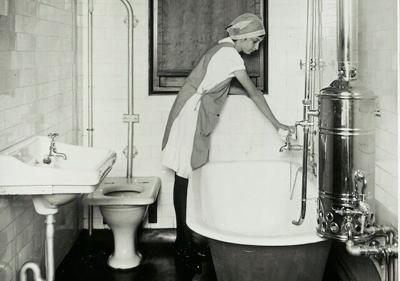
When it comes to drain blockages, prevention is always better than cure. Not only do block drains cause inconvenience and disruption, but they can also lead to costly repairs and even health hazards if left unchecked. Fortunately, you can take several preventive measures to avoid future drain blockages. In this blog post, we’ll share tips from professional drain cleaning service providers to help you keep your drains flowing smoothly.
Use drain covers
One of the easiest and most effective ways to prevent drain blockages is to use drain covers. These covers catch hair, food scraps, and other debris that can clog your drains. They are easy to install and are available in various sizes to fit different types of drains. By using drain covers, you can reduce the amount of debris that enters your drains and avoid blockages.
Avoid pouring grease down the drain
Grease is one of the biggest culprits when it comes to drain blockages. When hot grease is poured down the drain, it solidifies as it cools, forming a sticky mass that can trap other debris and cause blockages. To prevent this from happening, avoid pouring grease down the drain. Instead, let it cool and solidify in a container before disposing of it in the trash.
Dispose of food scraps properly
Food scraps, especially those that are fibrous or starchy, can also cause drain blockages. To avoid this, make sure to dispose of food scraps properly. Avoid putting fibrous or starchy foods like potato peels, celery, and corn husks down the drain. Instead, dispose of them in the trash or compost them.
Use a plunger
Don’t wait for the problem to escalate if your drains are draining slowly. Use a plunger to clear the blockage before it becomes worse. A plunger creates a vacuum that dislodges the blockage and allows it to be flushed away. Make sure to use a plunger that is appropriate for the type of drain you are unclogging.
Schedule regular drain cleaning
Regular drain cleaning is one of the best ways to prevent future blockages. Professional drain cleaners have the tools and expertise to thoroughly clean your drains and remove any buildup or debris that can cause blockages. By scheduling regular drain cleaning, you can keep your drains flowing smoothly and avoid costly repairs.
Use natural drain cleaners
Chemical drain cleaners can be harsh and can damage your pipes over time. Instead, consider using natural drain cleaners. These cleaners are safe and effective and can be made using common household ingredients like baking soda, vinegar, and lemon juice. Natural drain cleaners are better for the environment and can also help keep your drains smelling fresh and clean.
Address plumbing issues promptly
If you notice any plumbing issues like slow drains or foul odors, address them promptly. Delaying repairs can cause the problem to escalate and lead to more severe issues like burst pipes or water damage. By addressing plumbing issues promptly, you can prevent future drain blockages and keep your plumbing system in good condition.
In conclusion, preventing future drain blockages is essential for maintaining the health and functionality of your plumbing system. By using drain covers, avoiding pouring grease down the drain, disposing of food scraps properly, using a plunger, scheduling regular drain cleaning, using natural drain cleaners, and addressing plumbing issues promptly, you can keep your drains flowing smoothly and avoid costly repairs. If you’re unsure how to prevent drain blockages or need to help unclog a drain, contact a professional drain cleaner who can provide expert advice and assistance.


(0) comments
We welcome your comments
Log In
Post a comment as Guest
Keep it Clean. Please avoid obscene, vulgar, lewd, racist or sexually-oriented language.
PLEASE TURN OFF YOUR CAPS LOCK.
Don't Threaten. Threats of harming another person will not be tolerated.
Be Truthful. Don't knowingly lie about anyone or anything.
Be Nice. No racism, sexism or any sort of -ism that is degrading to another person.
Be Proactive. Use the 'Report' link on each comment to let us know of abusive posts.
Share with Us. We'd love to hear eyewitness accounts, the history behind an article.